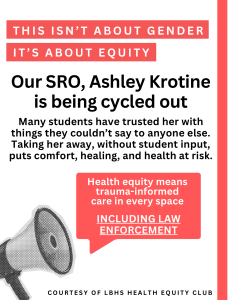Elementary schools are not properly preparing students for the future
March 21, 2021
Merriam Webster’s dictionary defines intelligence as “the ability to learn or understand.” One would think that this ability is developed in school, but I believe that the current school system is failing to do so. In the past few years, our elementary schools have started to implement “growth mindset” values into the curriculum which encourage kids to accept challenges and put forth their best effort in school. However, it is my belief that primary schools continue to do the exact opposite: hinder student growth. Elementary school classes are made to be “one size fits all.” They assume that all kids learn the same way, which allows some students to be at the top of the class and leaves others behind. However, students of all learning abilities should have access to individually challenging classes.
The current system of mixing up students of different abilities in classes contradicts a “growth mindset” inspired curriculum as students are not able to be faced with reasonable challenges. Without separation by ability, lower performing students feel like they will never match up to higher performing students. They begin to think they are “dumb.” It is this discouragement that makes it nearly impossible for a large group of students to succeed in school. Students who perceive intelligence as something you can acquire do much better in school than people who believe it is fixed. The mindset, ingrained in lower performing students, will hinder them for the rest of their lives, and it is completely false. Students learn differently. They might benefit from hands-on learning and some belief in their abilities.
Conversely, when higher performing students see themselves outperforming others, they accept that a moderate effort is all they will ever need to do better than everyone. This mindset hinders them in the future, as does the lack of rigorous classes.
Elementary schools need to start offering courses with different levels of difficulty to match the abilities of a student. If they don’t, children who do well in the primary schools will continue to be unprepared once they finally reach rigorous high school courses. Then these kids who have never developed skills to overcome challenges will not be ready to go out into the workforce and get a job because the school system has not properly prepared them in the way that it should have. Students should start to be challenged in elementary school so they are able to make mistakes and learn how to persevere in a much more low risk environment to prepare themselves for higher level classes.
From the beginning, students should be placed in classes based on what is challenging for them and be surrounded by similarly leveled children. This, along with encouraged self-introspection, is crucial to developing a true growth mindset. These changes will help students to assess their strengths and weaknesses to succeed in challenging environments, not just throughout school, but their entire lives.






